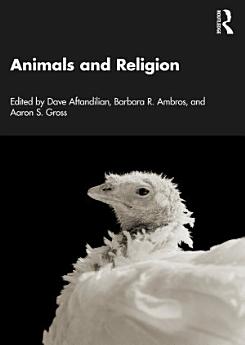Animals and Religion
આ ઇ-પુસ્તક વિશે
Through incisive analyses of religious examples from around the world, the original contributions to this volume demonstrate how animals have played key roles in every known religious tradition, whether as sacred beings, symbols, objects of concern, fellow creatures, or religious teachers. And through our religious imagination, ethics, and practices, we have deeply impacted animal lives, whether by domesticating, sacrificing, dominating, eating, refraining from eating, blessing, rescuing, releasing, commemorating, or contemplating them. Drawing primarily on perspectives from religious studies and Christian theology, augmented by cutting-edge work in anthropology, biology, philosophy, and psychology, Animals and Religion offers the reader a richer understanding of who animals are and who we humans are. Do animals have emotions? Do they think or use language? Are they persons? How we answer questions like these affects diverse aspects of religion that shape not only how we relate to other animals, but also how we perceive and misperceive each other along axes of gender, race, and (dis)ability.
Accessibly written and thoughtfully argued, Animals and Religion will interest anyone who wants to learn more about animals, religion, and what it means to be a human animal.
લેખક વિશે
Dave Aftandilian is Associate Professor of Anthropology, member of the leadership team for the Compassionate Awareness and Living Mindfully (CALM) Program, and founding Director of the Human-Animal Relationships (HARE) Program at Texas Christian University.
Barbara R. Ambros is Professor of Religious Studies at the University of North Carolina, Chapel Hill.
Aaron S. Gross is Professor of Religious Studies at the University of San Diego, a past president of the Society for Jewish Ethics, and the founder of the nonprofit organization Farm Forward.




